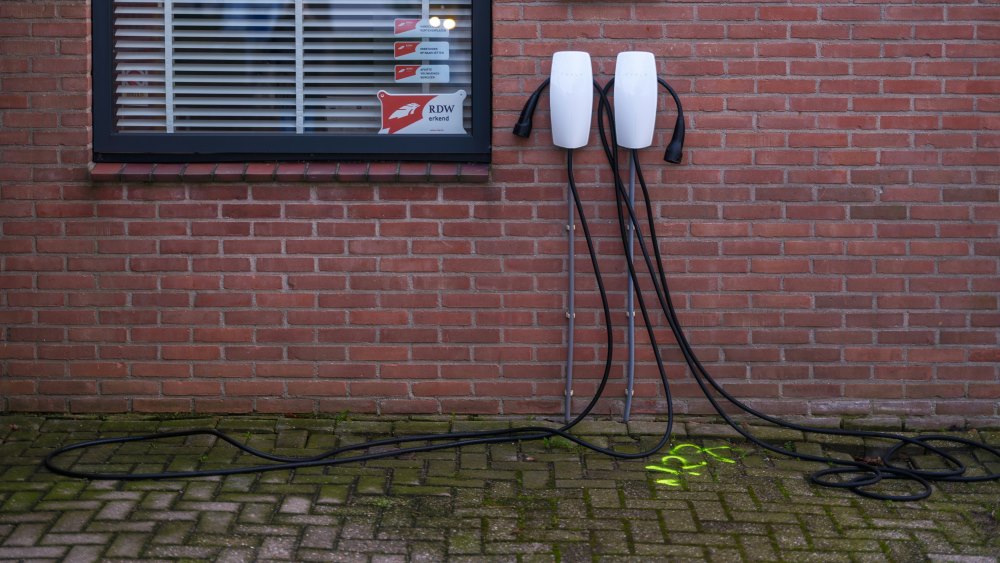The Top Myths About Home Charge Point Stations Debunked

As electric vehicles (EVs) become more popular, so does the need for convenient home point charging solutions. A home charge point station is a great option for EV owners, but with growing interest comes several misconceptions. In this article, we will address and debunk the top myths about home charge stations to clear up confusion and help you make an informed decision.
1. Myth: Home Charge Point Stations Are Too Expensive
One of the most common myths about home charge point stations is that they are expensive to install and maintain. While it’s true that the initial setup cost can vary, the prices have significantly decreased in recent years, making them more affordable.
Additionally, the cost of installing a home charger is offset by the savings on fuel compared to gasoline vehicles. With the right home charger facts, you’ll realize that the long-term savings on electricity and convenience make the upfront cost well worth it.
2. Myth: Installing a Home Charge Point Station Is Complicated
Another misconception is that installing a home charge point station requires complicated electrical work or permits. Most installations are straightforward, and many qualified installers can handle the process quickly and efficiently. If you have a dedicated parking spot and access to a power source, you can usually complete the installation within a few hours.
While some EV owners believe they need to upgrade their entire electrical system, this is often not necessary. A reputable installer will evaluate your home’s electrical setup and determine the best solution, so you don’t have to worry about complex or costly upgrades.
3. Myth: A Home Charger Won’t Work With My Electric Vehicle
Many people wrongly assume that home charge point stations are not compatible with every electric vehicle. The truth is that most home chargers are universal and work with the vast majority of EVs. They use standard connectors such as the Type 1 or Type 2 connectors, making it easy to plug your car into the charger.
The key is to choose a home charge station that suits your vehicle’s specifications. As the EV market expands, charging stations are designed for compatibility, ensuring seamless integration with future vehicle models.
4. Myth: Charging My EV at Home Takes Too Long
Another common myth discouraging people from investing in home charge points is the belief that home charging takes too long. While it’s true that home chargers are slower than public fast chargers, they are ideal for overnight charging.
A Level 2 home charger can fully charge an average EV battery overnight, making it ideal for daily use. Most EV owners don’t worry about long charging times, as they can charge overnight and have a full battery each morning. For longer trips, public fast chargers are available when extended charging sessions are needed.
5. Myth: I Can Only Charge My EV at Public Charging Stations
Some EV owners believe that public charging stations are the only convenient option for keeping their vehicle charged. However, home charge point stations are a far more convenient and cost-effective solution for regular use. Instead of searching for a nearby public station and waiting for a charging spot, you can simply plug in your car at home.
This eliminates the need to rely on public stations for routine charging and allows you to enjoy the freedom of charging your EV at any time. With a home charge station, you can also avoid the hassle of long waits or paying extra for public charging.
6. Myth: Home Charge Point Stations Are Only For Newer Homes
Some people believe that home charge point stations can only be installed in newer homes with modern electrical systems. However, this is not the case. Most homes, regardless of age, can accommodate a home charger with minimal upgrades. As long as your home has a dedicated parking space and access to a power source, installing a charging station is possible.
Older homes may require a simple electrical evaluation to ensure that the electrical system can handle the added load, but this is usually a quick and inexpensive fix.
7. Myth: Home Charging Stations Are Not Safe
Safety concerns often arise when considering a home charge point station, especially about overcharging or electrical hazards. Modern home chargers include essential safety features like overcurrent protection, short-circuit prevention, and temperature monitoring. These ensure safe and reliable charging at all times.
Moreover, most home chargers are UL certified, meaning they meet rigorous safety standards. With a proper installation by a certified technician, the risk of safety issues is minimal. Charging your EV at home is just as safe as charging any other electronic device.
Conclusion: The Truth About Home Charge Point Stations
In summary, home charge point stations offer numerous benefits, including convenience, affordability, and safety. By debunking these myths, we hope to provide clarity for EV owners who are considering making the switch to home charging. As demand for electric vehicles continues to grow, having the right power solution at home becomes an increasingly valuable investment.
At SIMSUKIAN, we provide a variety of high-quality, customizable home charge point stations to suit every electric vehicle owner’s needs. Whether you’re new to EV ownership or looking to upgrade your charging setup, our products ensure reliability, safety, and efficiency.

